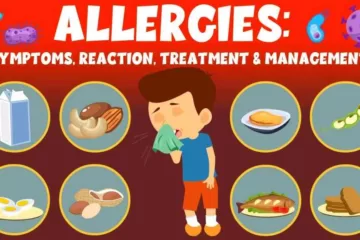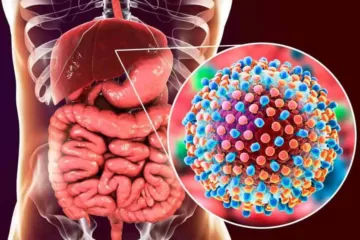The heightened emphasis on infectious diseases due to COVID-19 has prompted researchers to delve deeper into common respiratory illnesses following the pandemic. This exploration has unveiled “long” respiratory illnesses, characterized by persistent symptoms even after the initial infection resolves.
Although many are familiar with long COVID (or post-COVID conditions), recent studies have unveiled the existence of long flu and long cold. What exactly are long cold, long flu, and long COVID, and when is it advisable to consult a doctor if you suspect you have any of these? Infectious disease experts provide a detailed breakdown.
What transforms a respiratory illness into the long version?
Although the notion of long COVID has been recognized for an extended period, the concept of long flu and long cold has only recently emerged through research. Nevertheless, physicians unanimously acknowledge that respiratory symptoms persisting beyond three months categorize an individual into the long-term category.
“We’ve established the three-month threshold,” explains Dr. William Schaffner, an infectious disease specialist and professor at the Vanderbilt University School of Medicine, to Yahoo Life. “If you experience symptoms beyond three months, we label that as ‘long COVID,’ and this consensus applies to other prolonged respiratory illnesses too.”
Did extended forms of the flu and cold always exist?
Dr. Amesh Adalja, a senior scholar at the Johns Hopkins Center for Health Security, notes that long respiratory illnesses were not prominently recognized before COVID-19, but indications suggest they were already in existence. “We were aware that symptoms from any respiratory infection could extend beyond a week, and specific viruses could damage the respiratory tract, leaving it irritated for an extended period,” states Dr. Thomas Russo, chief of infectious disease at the University at Buffalo in New York. “Our focus on long illnesses has heightened with COVID, increasing awareness of long COVID.”
Schaffner concurs, stating, “In hindsight, we’ve observed that other viruses have triggered conditions similar to long COVID, though perhaps not as pronounced. COVID has played a role in defining and bringing attention to these cases.”
Research reveals that both long cold and long flu can manifest symptoms such as a persistent cough, sleep disturbances, memory issues, and difficulties with taste and smell, although these symptoms are typically more severe in the case of long COVID.
When should one consult a doctor regarding a prolonged respiratory illness?
Physicians emphasize the importance of recognizing the potential development of a secondary sickness, such as bronchitis or pneumonia, from a respiratory illness, which differs from a prolonged illness. According to Russo, indicators of a bacterial infection on top of influenza, COVID, or a cold often include sudden improvement followed by the onset of a fever, increased shortness of breath, and chest pain. Schaffner supports this observation, emphasizing that these signs indicate a more complex situation, warranting a call to the doctor.
In contrast, long cold, long flu, and long COVID present with more ambiguous symptoms and typically lack a fever, as noted by Adalja. Prolonged infections’ symptoms can also disrupt daily activities, making it challenging to function normally. Adalja underscores the importance of assessing longer-term symptoms to rule out the possibility of a secondary infection.
Russo advises that if you are still experiencing symptoms three months after having a cold, the flu, or COVID-19, it is advisable to contact a doctor.
What is the approach to treating prolonged respiratory illnesses?
Regrettably, there is currently no established treatment protocol for long cold, long flu, or long COVID. According to Russo, the current approach primarily involves managing symptoms as the underlying causes are still being investigated, making treatment challenging.
If you suspect a long respiratory illness, Russo advises seeking an evaluation from your healthcare provider. For those with long COVID, Schaffner recommends exploring the availability of long COVID clinics at major medical centers nearby, where various medical specialties collaborate in patient care.
In general, Russo suggests that the likelihood of experiencing long cold, long flu, or long COVID appears to be linked to the severity of the initial infection. However, many aspects of these prolonged illnesses remain unknown. “Hopefully, ongoing research will provide us with more answers,” he adds.




